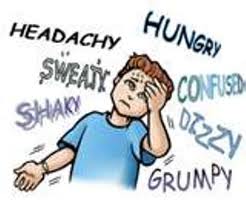Is Your Body Overwhelmed And Undermined By Too Much Sugar?
If you found this information helpful, please share it with others
 By Steve Marmor herbalist, iridologist, nutritional consultant
By Steve Marmor herbalist, iridologist, nutritional consultant
Sugar…In this country we love it, but know we shouldn’t. In fact, we are eating more now than ever before—overwhelming our bodies in a sea of refined sugar. Do most people really know what sugar does inside the body? The calories in sugar aren’t just “empty calories”—they may actually be “negative” calories because of the way sugar steals nutrients, causing the inflammation that can lead to insulin resistance and diabetes, as well as overweight, obesity, over-acidity, hypoglycemia, and a host of other health issues.
Let’s start with just how much we are eating. Consider that more than a hundred years ago, the average adult consumed approximately 18 pounds of sugar per year. Today, average sugar intake in the U.S. is remarkable, at over a 150 pounds per person. This is nearly a 1000% more sugar than 100 years ago. The availability of processed, concentrated sugar—in soda, candy bars, sport beverages, energy drinks, so-called electrolite replacement drinks, ice creams, and other high-glycemic index foods—has overwhelmed our bodies’ ability to process it.
In response to this terrible trend, Dr. John Yudkin of London University says, ” the great increase in the consumption of sugar has come so quickly, measured on an evolutionary scale, that humans had no time to adapt to it. ” What’s happening instead? We’re getting fat, sick, and we are dying…of diabetes, an almost totally preventable condition.
What can help? There are plenty of good foods that help keep diabetes and uncontrolled blood sugar in check, including fresh, whole fruits (not too much or too sweet), vegetables and lean meats (for non-vegetarians).
In addition to a healthy diet, focus on:
*Fiber* Fiber reduces the body’s need for insulin. It also acts as a natural “sponge”, controlling the release of sugar into your blood in a more gradual way. Because most Americans are eating 11-15 grams of fiber a day, they aren’t seeing the benefits fiber has to offer. We really need closer to 30-35 grams daily. If you cannot get that much from food, consider taking a supplement.
*Amino acids and enzymes* Amino acids provide the raw materials for the body’s production of insulin, and enzymes aid in the digestion and absorption of nutrients. These two help good food do its work better.
There are also plenty of supplements that help the pancreas and liver and can be very useful as it relates to prevention of diabetes.
Nopal, is one of these. It is a prickly pear cactus, usually consumed in capsule form, that helps to maintain blood-sugar levels. It is very low-glycemic and has been used by our neighbors to the South, like Mexico and South American countries, in some cases, for hundreds of years.
Chromium, GTF (glucose tolerance factor). This supplement helps maintain blood sugar levels, aids in the control of glucose and fatty acids, promotes energy by helping transport glucose to cells, and cuts down on the body’s need for insulin.
There are other excellent individual supplements, as well as supplement formulas great for those dealing with pre-diabetes or diabetes. Garcinia cambogia is an herb used in India for decades that reduces sugar cravings and helps block the conversion of excess sugar to unwanted fat..
Also, as it relates to diabetes, never forget the importance of good water in copious amounts, as well as exercise.
For a more comprehensive approach to preventing or addressing the problem of diabetes type 2, as well as ways to reduce sugar cravings that are leading to many of these problems, contact Steve Marmor at Herbs & More, 760 753-7272, since 1993. In-person consultations available, as well as consultations done by phone or skype. Also, please see www.herbsandmore.com for more health info on a wide variety of health topics.
In many cases, even Type 1 diabetics can be assisted considerably when it comes to reducing the need for using as much insulin, as well as be helped in the maintenance of a more even and balanced blood chemistry, more of the time, with less dramatic blood sugar fluctuations.
Best health,
Steve
If you found this information helpful, please share it with others
 By Steve Marmor herbalist, iridologist, nutritional consultant
By Steve Marmor herbalist, iridologist, nutritional consultant



